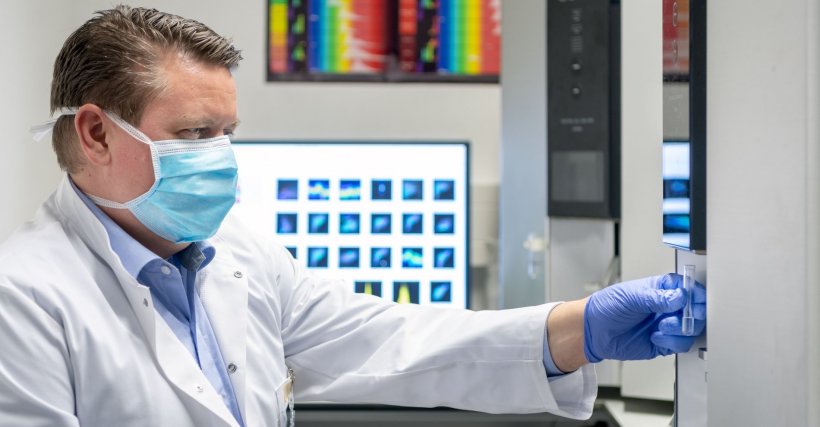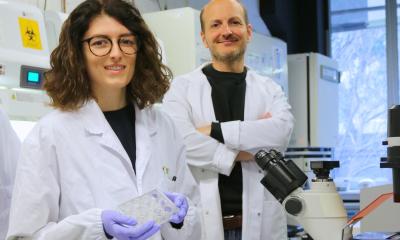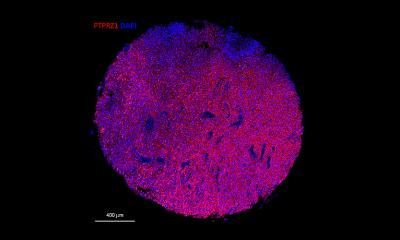
Photo: A. Heddergott / TUM
News • Cause for lack of immune defense against tumors discovered
Improving immunotherapy for cancer
Our immune system not only protects us against infection, but also against cancer. This powerful protection is based in particular on the activation of special cells of the immune system, CD8+ T cells.
These cells recognize infected or cancer cells and kill them specifically. “The ability of the immune system and especially CD8+ T cells to eliminate cancer cells in tissues such as the lung, gut and liver is often limited in tumor patients,” explains Percy Knolle, Professor of Molecular Immunology at the Technical University of Munich (TUM).
Cancer cells send out signals that slow down the immune response against them. The knowledge of how tumor-specific immunity is restricted by these signals has led to the development of immunotherapies against cancer through what is referred to as checkpoint inhibition. In this form of therapy, the signals emitted by cancer cells are inhibited and unleash cancer-specific immunity. Administration of antibodies that target these signals (“checkpoint inhibition”) often can reinvigorate the patient´s immune response against the tumor.
The TUM research group led by Dr. Bastian Höchst and Prof. Percy Knolle at the Freising-Weihenstephan site and the University Hospital Klinikum rechts der Isar in Munich, together with researchers from the University of Heidelberg and the Otto von Guericke University Magdeburg as well as Yale University in the US, has discovered a novel mechanism of suppression that inhibits cancer-specific immune responses.
The researchers published their findings in the journal Nature Immunology.
Recommended article

Article • The future has begun
Cancer care 2035: multi-disciplinarity is key
An enthralling insight into the care that could be offered to cancer patients of the future was presented by cancer imaging expert Professor Regina Beets-Tan during her a keynote presentation at the recent British Institute of Radiology congress. In the session ‘Oncologic imaging: Future perspectives’, the professor outlined what a Multi-Disciplinary Team (MDT) of the future – a team in…
According to their recent publication, this suppression is mediated by a breakdown product from glucose metabolism. A particular type of myeloid immune cell (myeloid suppressor cells), which suppresses the activation of CD8+ T cells, are often found near and in tumor tissues. They are known to severely limit cancer-specific immunity. “We were able to identify the excessive production of the breakdown product from glucose metabolism as a characteristic feature of suppressor cells in the tumor and at the same time to attribute inhibition of cancer-specific immunity to this suppressive metabolite,” explained Dr. Bastian Höchst.
The researchers found that inhibition of cancer-specific CD8+ T cells is enforced by this suppressive metabolite through depletion of amino acids that are essential for the activation of immune cells. Such inhibited immune cells remain alive, but are arrested in hibernation-like state of low metabolic activity. The researchers succeeded in developing methods, with which these “hibernating” immune cells can be re-awakened. The combination of “checkpoint inhibition” with neutralization of the suppressive metabolite led to a strong increase in cancer-specific immune response in experiments. “These results will lead the way to development of new forms of immunotherapy against cancer,” summarized Prof. Knolle.
Source: Technical University of Munich
02.05.2020











